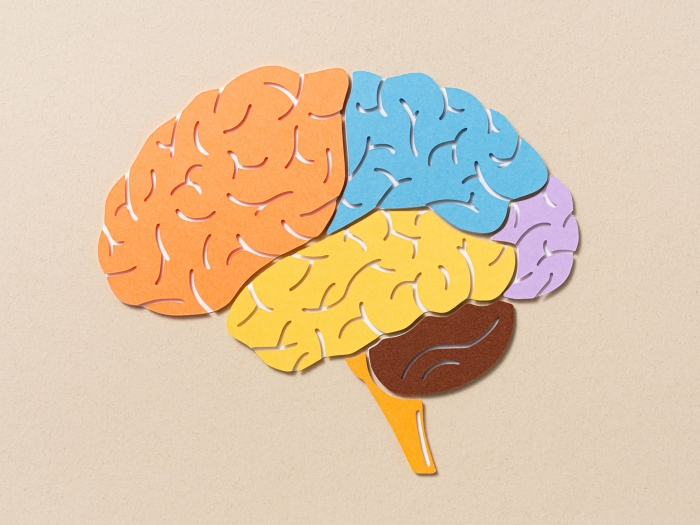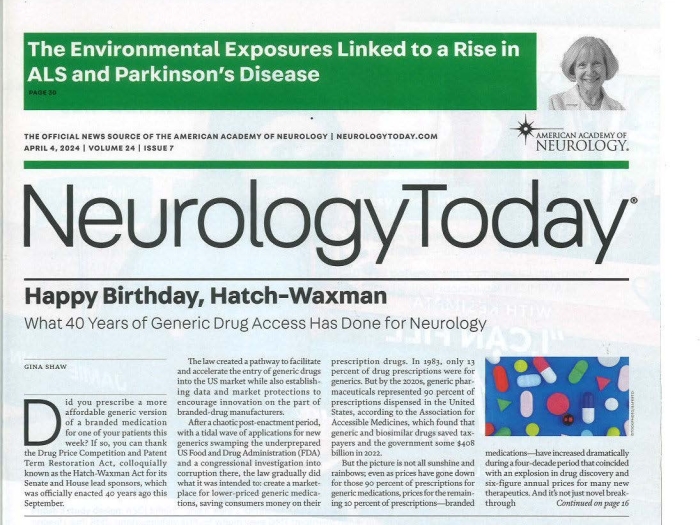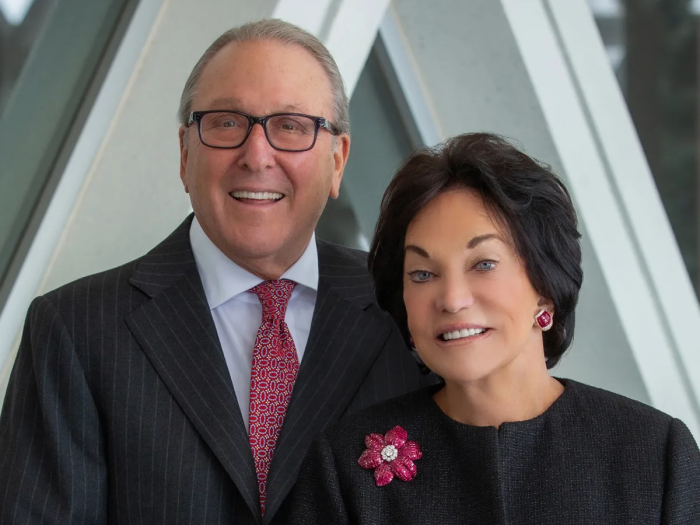A non-contact boxing program is helping patients with the condition improve their quality of life
8:52 AM
Author |
When Ed Baker was first diagnosed with Parkinson’s Disease in 2018, he was given one directive by his neurologist: Exercise, exercise, exercise.
And Baker took that to heart.
“I started working out right away, knowing that that was the best way to slow down the progression of symptoms,” Baker said.
Now, Baker and other patients with Parkinson’s at Michigan Medicine have a dedicated time and space to get that all-important exercise as part of a new Rock Steady Boxing Program held at the TITLE Boxing Club in Ann Arbor.
Stepping into the ring
Rock Steady is a national nonprofit that organizes non-contact boxing programs for those with Parkinson's disease, a degenerative movement disorder that can cause issues with speech, balance, gait and other motor skills.
Affiliate programs – such as the one at TITLE – follow a set curriculum designed to improve quality of life for their participants.
The program in Ann Arbor is only a few months old, and came to fruition thanks to the hard work and dedication of TITLE owner Dave Lewan, and Michigan Medicine’s Mikaela Lowe and Kathryn Bennett, two team members at the Brighton Center for Specialty Care.
Lowe, an occupational therapist who works in neurological rehab, knew about the Rock Steady program and also knew that Michigan Medicine patients needed a place to go once their rehab was completed. So she partnered with Bennett, a registered nurse who works with patients with movement disorders.
The two of them happened to be members of TITLE, where Lewan was interested in creating an affiliate of Rock Steady. Bennett and Lowe introduced him to Christopher Chauncey Spears, M.D., in the Department of Neurology.
And the rest is history.
“There are 1,700 patients in Washtenaw County alone who have been diagnosed with Parkinson’s,” Lewan said. “I knew Rock Steady would be a great fit for people who have been impacted locally – so our team wanted to deliver on their behalf and provide a community-based resource for those who need us.”
Pulling no punches
Lowe, Bennett, Lewan and his staff knew that if they were going to start a program, they needed to do it right. So TITLE team members underwent training to get certified in the Rock Steady curriculum and then trained other coaches, health care professionals and volunteers.
The team then held an open house in January to gauge interest in the program.
Today, more than a dozen patients show up three times a week for classes, which are all structured to benefit participants as much as possible.
“We begin with a 15-minute warm-up to get their heart rate going, then we set up three stations for them: a weightlifting station, a boxing station that helps with strength and balance, and then a high-stepping station that helps with their gait,” Bennett said.
The classes end with a cooldown group workout.
Why is exercise – and boxing in particular – such a positive tool for patients with Parkinson's disease? Lowe explained: “Boxing promotes large movements and patients with Parkinson’s tend to have rigidity, slow movements and poor posture.”
And promoting that behavior in a group setting has an added benefit: camaraderie.
“We have a great group here and we all have something in common,” Baker said. “We’re all trying as hard as we can to slow down the progression of our symptoms.”
Baker adds that such a slowdown has been noticeable since he began Rock Steady.
“My symptoms are still there, but they are so much better than they were at the start,” he said. “Where I’ll be in 5, 10, 20 years … I don’t know. But I do know that I’m confident with this program that I can at least slow down my Parkinson's disease progression.”
Continuing the fight
Bennett, Lowe, Lewan and the others behind Rock Steady want as many patients as possible to have such a positive experience.
That’s why their hope is to grow the program.
“All of us at Michigan Medicine love helping people,” Bennett said. “And we know that our program helps with dopamine regulation, strength, stamina and camaraderie. That’s why we’re so excited to bring Rock Steady to our patients.”
“In the end, our goal is to help people fight back against Parkinson’s,” Lowe said. “And we can do it in a way that improves physical, mental and emotional wellbeing. It’s pretty special.”
Reach out to TITLE Boxing Club at 734-213-1300 to learn more about registering for the program.

Explore a variety of healthcare news & stories by visiting the Health Lab home page for more articles.

Department of Communication at Michigan Medicine
Want top health & research news weekly? Sign up for Health Lab’s newsletters today!





